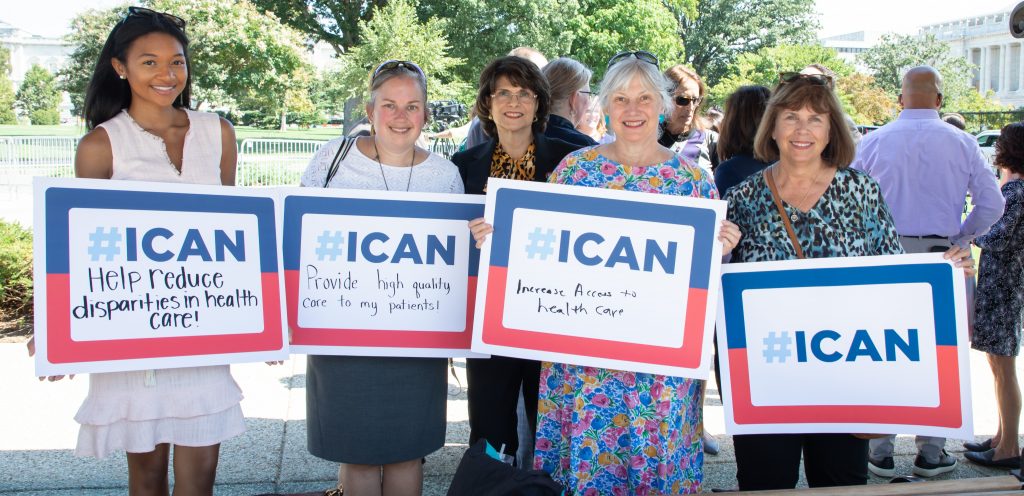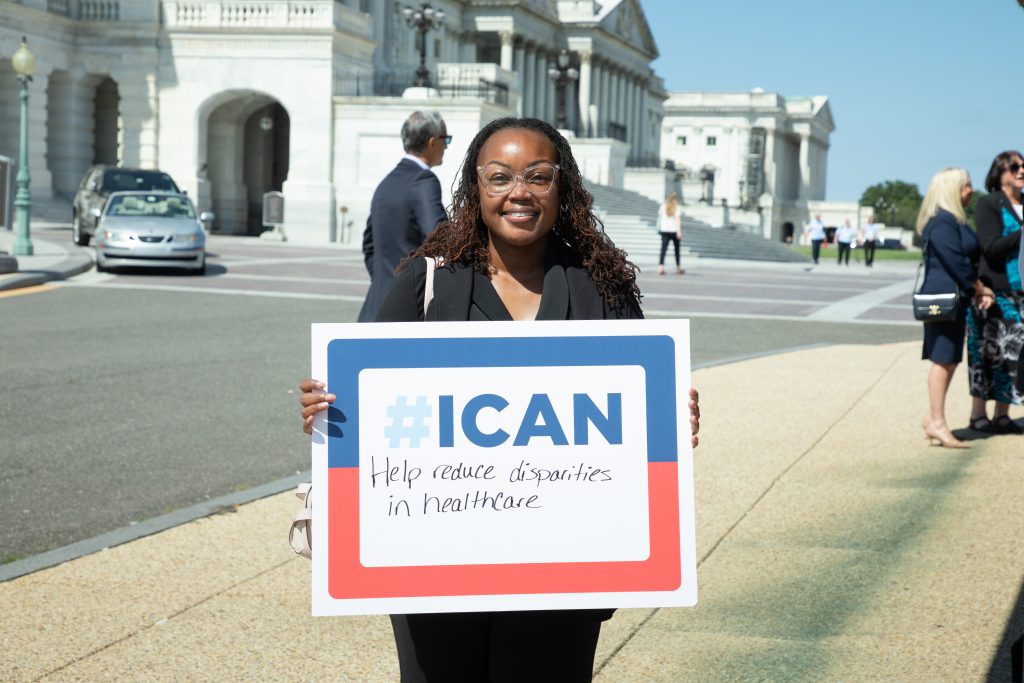Achieving safe staffing levels for nurses across care settings remains a top priority for ANA. That is why we are pleased about a recent regulatory win—the Centers for Medicare & Medicaid Services (CMS) issued a final rule aimed at bolstering nurse staffing at long-term care (LTC) facilities.
This landmark regulation sets minimum staffing standards for nurses in LTC facilities across the country. CMS was directed to engage in this rulemaking by a February 2022 Executive Order issued by President Biden, as part of a larger focus on addressing challenges faced by nursing homes. The Administration signaled that this issue remains a top priority with Vice President Harris announcing the release of the final rule with an accompanying White House fact sheet.
ANA submitted November 2023 comment letters on the proposed rule that was released in September 2023—one on behalf of the association and the other along with over 25 state and organizational affiliates. The letters urged the agency to finalize its proposals with suggested refinements. ANA is pleased to see CMS finalize this landmark regulation, which sets nurse minimum staffing standards in LTC facilities across the country. The standards set specific ratios for registered nurses (RNs) and nurse aides (NAs) that are part of a total staffing standard. ANA is disappointed that CMS did not specifically call out licensed practical nurses/licensed vocational nurses (LPNs/LVNs) in the standard in recognition of their critical contribution to the patient care team but appreciates that the agency did note that these nurses can be used to meet total staffing standard requirement.
ANA is especially pleased that CMS also finalized its proposed requirement for all LTC facilities to have an RN onsite 24 hours a day, seven days a week (24/7). ANA has long advocated for this requirement and is encouraged that the agency also recognizes the importance of having an RN onsite 24/7. ANA comments on the proposed rule also encouraged CMS to ensure nurses are included in facility assessments and that any exemptions are granted based on rigorous assessments—which the agency incorporated in the final rule. Last, CMS also noted that they have $75 million to invest in LTC workforce development. The agency is still determining how best to roll out this initiative and ANA is watching for any opportunities to weigh in on any approaches to make sure they truly support and provide incentives for our nurses.
While ANA is encouraged that CMS finalized this important regulation—signaling the importance of safe staffing in LTC facilities across the country—we know our work on these standards is not done. Groups opposed to the rule have publicly shared that they will continue to fight to delay or halt implementation all together, potentially through the court system. We know that before the agency issued the final rule, efforts in Congress to tie CMS’ hands from issuing this rulemaking was making progress. We are discouraged by these efforts as ANA understands how important safe standards are for nurses and the patients that they serve.
ANA continues to analyze the provisions of the rule and educate its members on its importance—while taking time to recognize the significant win that this final rule represents for safe staffing efforts. We will continue to seek opportunities to protect this rule and promote similar efforts. Together with our members, we will continue to make real strides in addressing safe staffing for nurses and the patients they serve.


